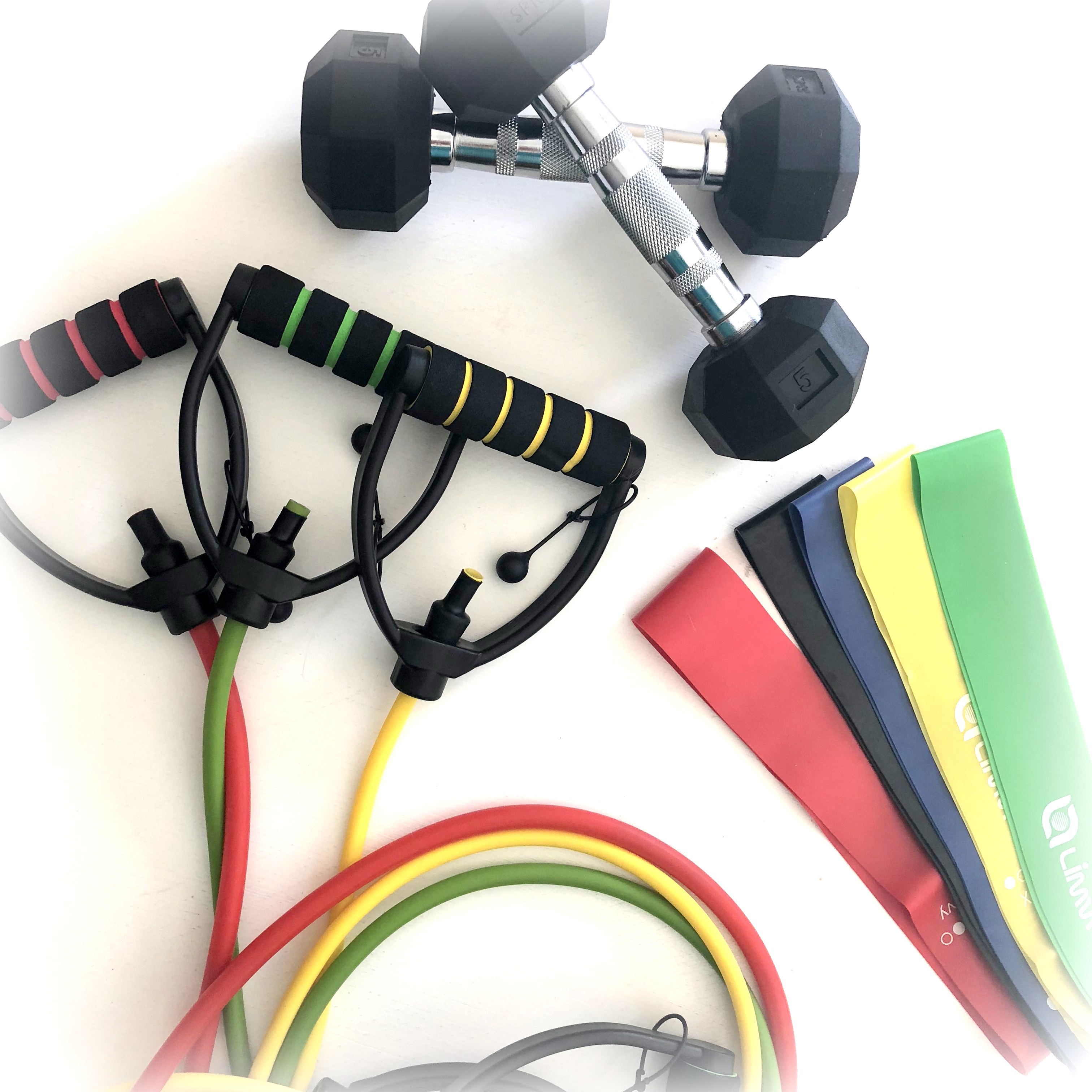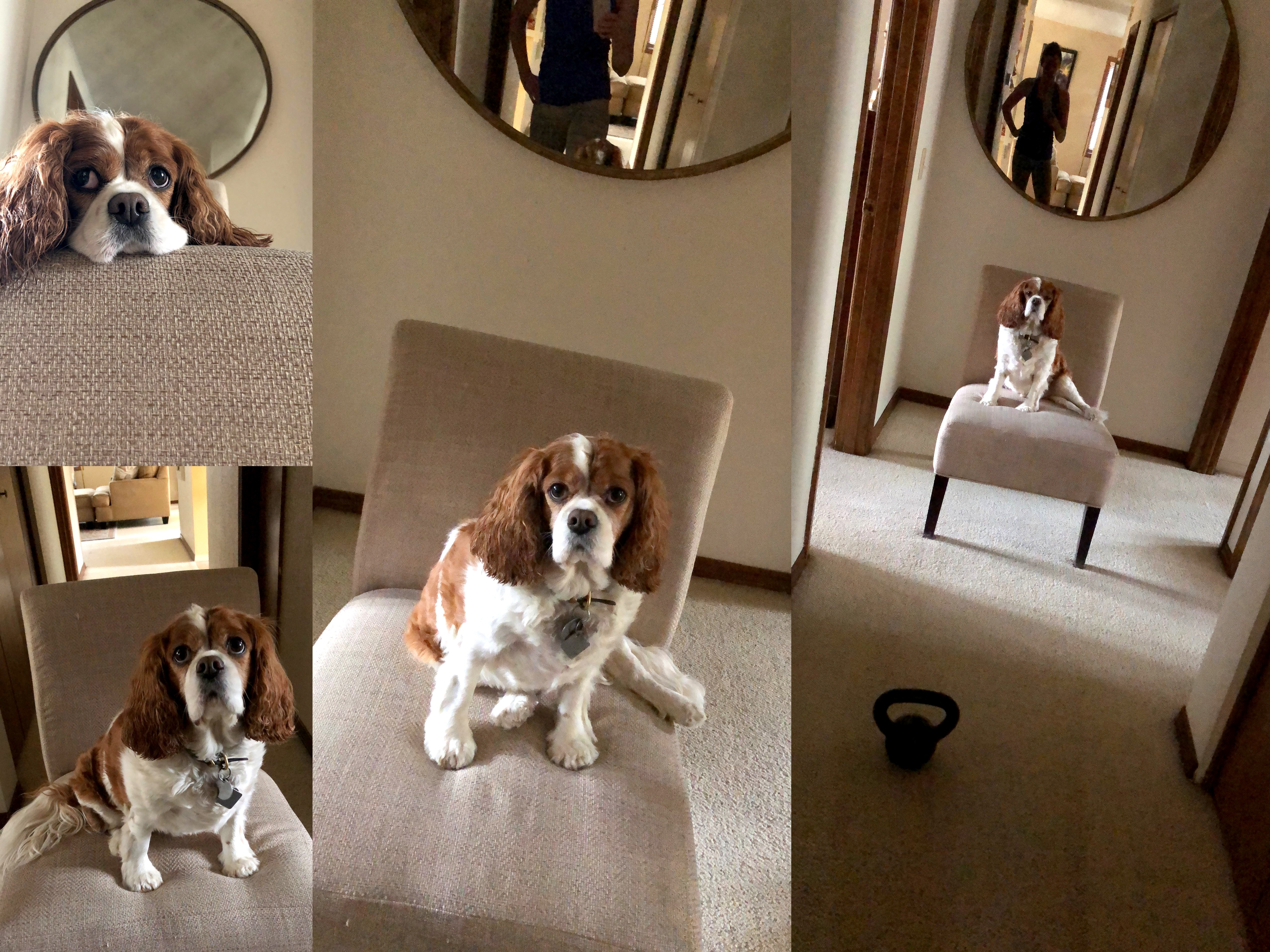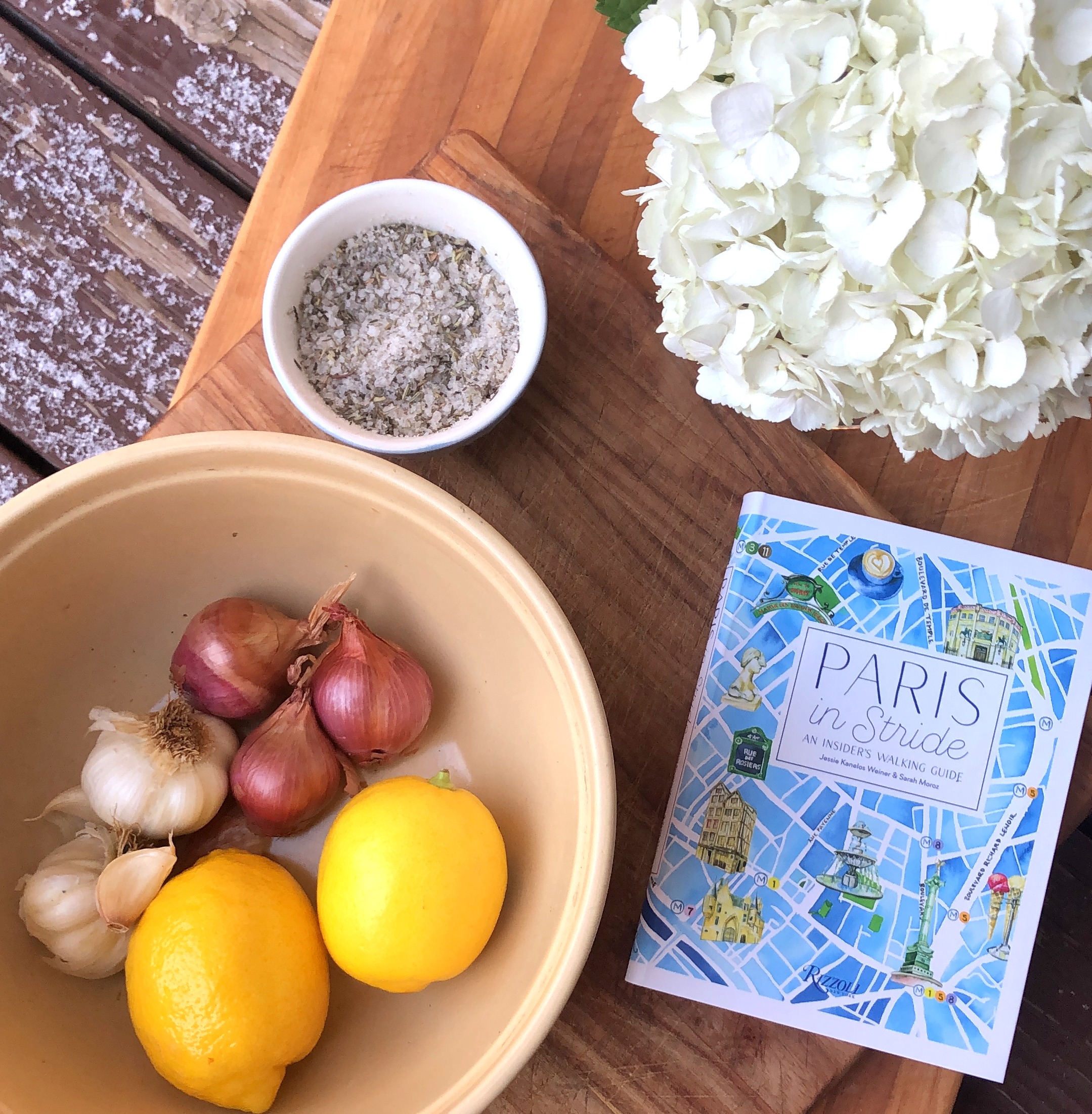201: Design an At-Home Strength Training Program That Works
The Simple Sophisticate - Intelligent Living Paired with Signature Style - A podcast by Shannon Ables - Wednesdays

Categories:
~The Simple Sophisticate, episode #201
~Subscribe to The Simple Sophisticate: iTunes | Stitcher | iHeartRadio | YouTube

"Exercise should be regarded as tribute to the heart." —Gene Tunney
Disspell the myths, push through the pain, discover what you do not know so the wrong information no longer holds you back. The concept of good overall physical health is a tripod: aerobic, strength and flexibility. A regular regimen which includes these three components will offer a firm foundation of lasting health. When we pair strong physical health with emotional and mental health, we are a mighty force with the potential to live well. As 2018 began, one of my resolutions was to improve the quality of my strength program. As I shared in TSLL's first book, in chapter six which focuses on health and beauty, my approach to creating a strength program is to hire a personal trainer for at least one session and hire them to help you design an at-home working routine. Having done this more than thirteen years ago, I realized I may need a refresher to my routine. The opportunity to work with an expert in the field of fitness as well as health and nutrition was something I didn't want to squander. Yes, I know the basics of health. As a collegiate athlete who has competed at the national level, and throughout my entire childhood, as well as coached varsity volleyball in high school, I knew the general concepts of proper form, body awareness and possible exercises. What I didn't have was accountability and someone to push me further than I would push myself. After all, having the energy and the time to accomplish what I want is typically the biggest obstacle I run up against, as I have a feeling most of us do, when it comes to changing the quality of our lives. It's not that we don't know better or don't want to make the change, it the ability (willpower, time, support) that is lacking. Wanting to gain as much benefit from my sessions as possible, I had a list of questions in my mind to address my concerns and questions as well as a clear set of objectives I hoped to attain. Objectives:
- an effective strength routine I can complete at home
- a challenging routine that keeps my body toned, lean, and strong
- to habituate in my mind the act of the created routine
Questions & Concerns:
- How to not become bulky, what causes this to happen?
- What should I eat and when to support my objectives?
- How often and how long?
- What equipment do I really need at home to complete my routine?
For ten weeks, each Monday, I met with my personal trainer at a local gym. For an hour we went through a training session which was different each week. Later in the week, I would take an hour at home and follow that particular week's strength routine, fitting in a total of two strength routines each week. Part of the reason I hired the trainer for 10 sessions was to accomplish my third objective: to create a habit. Sure enough, now that I have been on my own for two weeks, every Monday afternoon or evening, I carve out 1 hour and get to work. I have chosen a day that works best with the rest of my schedule (blogging and teaching, as well as my walking schedule with the dogs). I have also found tending to my first strength routine of the week on Monday is a wonderful way to start the week as I feel I have accomplished something that does take a lot of willpower, and at the beginning of the week, I have far more than I would have on even Tuesday, let alone Wednesday or Thursday and especially Friday. The component my trainer made available through our sessions together was her knowledge of eating well paired with proper fitness. As a nurse and health coach, she answered many questions that I raised as well as offered a multitude of different ideas for eating well and what to eat directly before and after my training sessions (good carbs and protein). The benefits of regularly incorporating a strength routine into your overall health regimen are immense now and throughout your entire life (US Supreme Court Justice Ruth Bader Ginsburg at the age of 85 just released her new book The RBG Workout which include many of the exercises in my new workout - planks anyone?), and below are the most important reasons to create a plan that is effective and consistently adhered to as reported by the Mayo Clinic.
- Reduce the potential of osteoporosis in later years. Bone strength is greatly increased with regular strength training.
- The calories keep on being burned. Metabolisms increase, caloric burn continues long after the workout and thus a leaner body results (so long as the eating regimen is in proper alignment).
- Can reduce chronic pain and health maladies such as back pain, heart disease, depression, diabetes, arthritus and obesity.
- Improves the mind's agility. Some studies have revealed a connection between regular strength training and the mind's ability to learn new skills and improve memory and analytical thinking.
The truth about about strength training and losing weight is that as The New York Times reported in 2015, if we do not pair our physical fitness — both aerobic and strength training — with a diet of moderation and balanced nutrition, we thwart the positive results that can be possible. (read: How to Enjoy Eating Every Day and Love the Results, episode #165) What does my new strength training entail? Below are the components.
- 2-3, 45 minute - 1 hour sessions each week
- Goal each week: work out both upper and lower in either individualized sessions or combo sessions
- Visit WorkOutLabs.com to see in illustrations as well as build your own routine based on the part of the body you want to train.
- Begin with a 5 minute aerobic warm-up: walking, rowing, stairs, etc.
- Determine what will be the focus: upper, lower or both
- determine how many sets and how many repetitions in each set
- I usually choose to do three sets of 10, or graduated, 12-10-8; four sets if I am feeling as though I have energy
- Begin with the most challenging items first (to boost your confidence and get them out of the way)
- Incorporate abs into every workout by simply keeping them tight to maintain your balance and proper form.
- Create circuits of 2-4 different exercises, each with their sets and repetitions as it creates "segments" for your workout.
- Example: Ab workout — knee tap crunches, plank hold and hallow hold (each 10x or 10 seconds, 3 sets of each)
- End with a full abdominal segment
- 5 segments is usually what I include in strength routine
- Drink water throughout
- Visit WorkOutLabs.com to see in illustrations as well as build your own routine based on the part of the body you want to train.
- Never back-to-back sessions
- Equipment used:
- 5 pound hand weights (see in the above image - linked here)
- 15 lb kettlebell (seen in the image with Norman), 20 and 25 lbs are also something I might add in the future as I used these graduated weights in my workouts with my trainer.
- Resistance bands with handles in three varying strengths (seen in image above - linked here)
- Resistance bands, loops in five different strengths (seen in image above - linked here)
- Considering the following equipment:
- Bosu sports balanced trainer (half ball) for ab and arm work - push-ups
- Exercise ball - for abdominal and hamstring work
- An elimination or reduction of the following foods:
- pasta
- alcohol
- highly processed foods
- added sugar
- Sample Lower Body workout:
- 5 minute warm-up - walking or jumping jacks or jump rope
- walking lunges, air squats, 1 leg deadlift (10x, 3 sets)
- sled down and back in the hallway (see image with Norman in the chair below), kettlebell squats, knee to chest with 1 second pause (works the abs and arms as well). 3x, 10 each or 10 yards for the sled each way.
- banded kickbacks, ball hamstring curl, ab sit-ups, wall sit (3x, 10 repetitions)
- ball v-up, reserve side lung (3x, 12-10-8 repetitions)
- ab work: leg lifts, with weight behind head to overhead, oblique twists, straight arm pulses; 12-10-8
- Sample Upper Body workout:
- 5 minute warm-up - see above
- inchworm with pushup, walking lunges with bicep curl, shoulder taps, wall touch sit-ups; 4 sets, 5-10 repetitions
- push ups, upright row, chest press; 3 sets, 12-10-8
- tricep curl, row, box push-up, lateral raise, overhead press, bent over fly; 3 sets, 12-10-8
- ab work: wall touch, knee touch, knee to chest, plank knee to chest; 3 sets, 10 repetitions
- Sample Combo workout:
- pick and choose 2-3 of each workout above

~Norman as weight on the "sled". Counter-clockwise beginning in the lower lefthand corner: (1) First go-round, Norman are you ready? (2) after two lengths of sliding - I've got this; (3) Are we done?; (4) I am exhausted as you look, but anytime you want to push me again, I am here.~
Results and Outcome Thus Far The positive changes I have seen 12 weeks into my new strength training are gradual, but promising. While I do not get on a scale as muscle mass weighs more than fat, I instead pay attention to how my clothes fit: are my pencil skirts tight or do they easily slip on? which loop in my belt am I using? Can I fit comfortably into my jeans? While our bodies do fluctuate throughout the month, understanding our body's rhythms and how we feel after eating certain foods is part of understanding and determining whether our bodies and thus our health is on track. One improvement I have noticed is that my ability to hold poses in yoga has improved which is something I have always wanted to do since I began yoga more than seven years ago. And one of my fears was not realized (bigger shoulders). Yes, my shoulders and arms are slightly more defined, but they are no larger than they were when I wasn't doing my strength training. With the attention to a well-rounded arm strength routine, my entire arm is more capable of holding my body. One detail that was an important point for me to learn was that my body will swell up approximately 2-3 days after a strength training session. While I knew it would be sore (and it was especially so after the first week's session), I didn't realize it was also sweeling due to the body and muscles attempting to heal itself. It is important to note this temporarily change because it will feel (because it is) as though your muscles are expanding, but they will heal and in 2-3 days, the swelling will be gone. Since I keep my weights small (5lb for arm workouts and use high repetition), bulkiness is not something to fret about as was one of my questions from the beginning. The key to losing inches or maintaining the weight we have if that is the goal is to eat smart but not deprive ourselves and workout consistently while mixing up the routine we do each time to keep our muscles on their toes. I don't know if I'll ever fit into size 4 (US) jeans again as I am currently between a 6 and an 8, but the size doesn't matter so much anymore as my goal is to keep my body healthy and strong so I can be hiking, paddleboarding, taking yoga classes and cross country skiing well into my 80s and 90s, as well as go on lengthy walks with my dogs. I hope my experience has helped you, and while this is my tailored routine based on my time with a personal trainer, I do encourage you to seek out an expert in fitness and nutrition who can give you a personal plan for strengthening your body as well. As an investment in our health, I am confident you will see great value in receiving answers to questions you may have regarding your health and fitness journey. ~SIMILAR POSTS/EPISODES from the ARCHIVES YOU MIGHT ENJOY:
~Why Not . . . Lose Those Last 10 Pounds?
~To Get and Stay in Shape: Keep It Simple, episode #190
~15 Things to Do to Not "Feel Fat", episode #52
~Learn more and sign up for TSLL's Weekly Newsletter
Petit Plaisir
~Paris in Stride: An Insider's Walking Guide by Jessie Kanelos Weiner and Sarah Moroz
~Learn more about why I love this book in a full review here. 
~Sponsor of this week's episode:
- Audible
- Receive a free book with a 30-day trial membership
- Visit audible.com/simplesophisticate or text simplesophisticate to 500500
